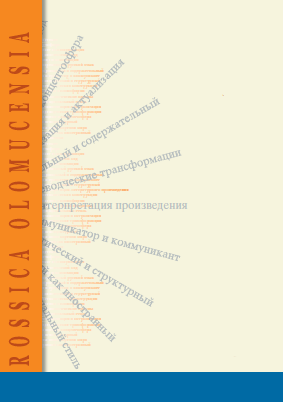« J'ai une mémoire, donc j'existe » − la dichotomie mémoire-oubli dans l'œuvre dramatique de Matéi Visniec
"I have memory, therefore I exist" − the memory-oblivion dichotomy in the dramatic works of Matéi Visniec
Author(s): Sylwia KucharukSubject(s): French Literature
Published by: Univerzita Palackého v Olomouci
Keywords: memory; oblivion; death; funeral rites; manipulation
Summary/Abstract: The objective of the paper is to analyse the memory-oblivion dichotomy present in the dramatic works of Matéi Visniec, first by referring to the opposition between beautiful death and desecrated death, second in the context of the transition from the cult of memory to the cult of oblivion, and third by examining the manifestations of the abuse of memory and oblivion in today's society, denounced by the author. The analysis is based on the terminology concerning the close relationship between death and memory proposed by Jean-Pierre Vernant and Sébastien Rongier, and on Paul Ricœur's reflections on the typology of the abuse of memory and the question of just memory. In the plays that are analysed, which recall the war, outrageous death condemns the soldier to oblivion. The funerary rites and the grave that allow the dead to enter the collective memory become true instruments of commemoration. Visniec denounces the trivialization of death in the consumer society that contributes to the dehumanization of human beings and indifference to the evil that has transformed Europe into a dustbin full of human remains. The analysis leads to the conclusion that Visniec's reflections on memory and oblivion are close to Ricœur's philosophy, because he emphasizes the importance of mourning and remembrance in the European tradition, and of the memory that allows us to denounce evil and provides protection against harmful abuses to the collective and individual memory and consequently to the society and individuals.
Journal: Romanica Olomucensia
- Issue Year: 31/2019
- Issue No: 2
- Page Range: 243-254
- Page Count: 12
- Language: French

